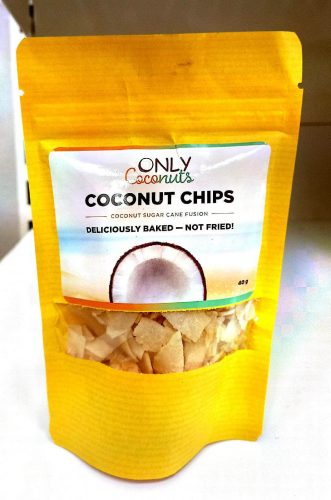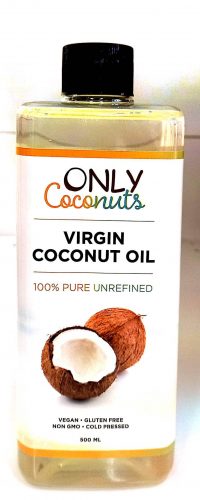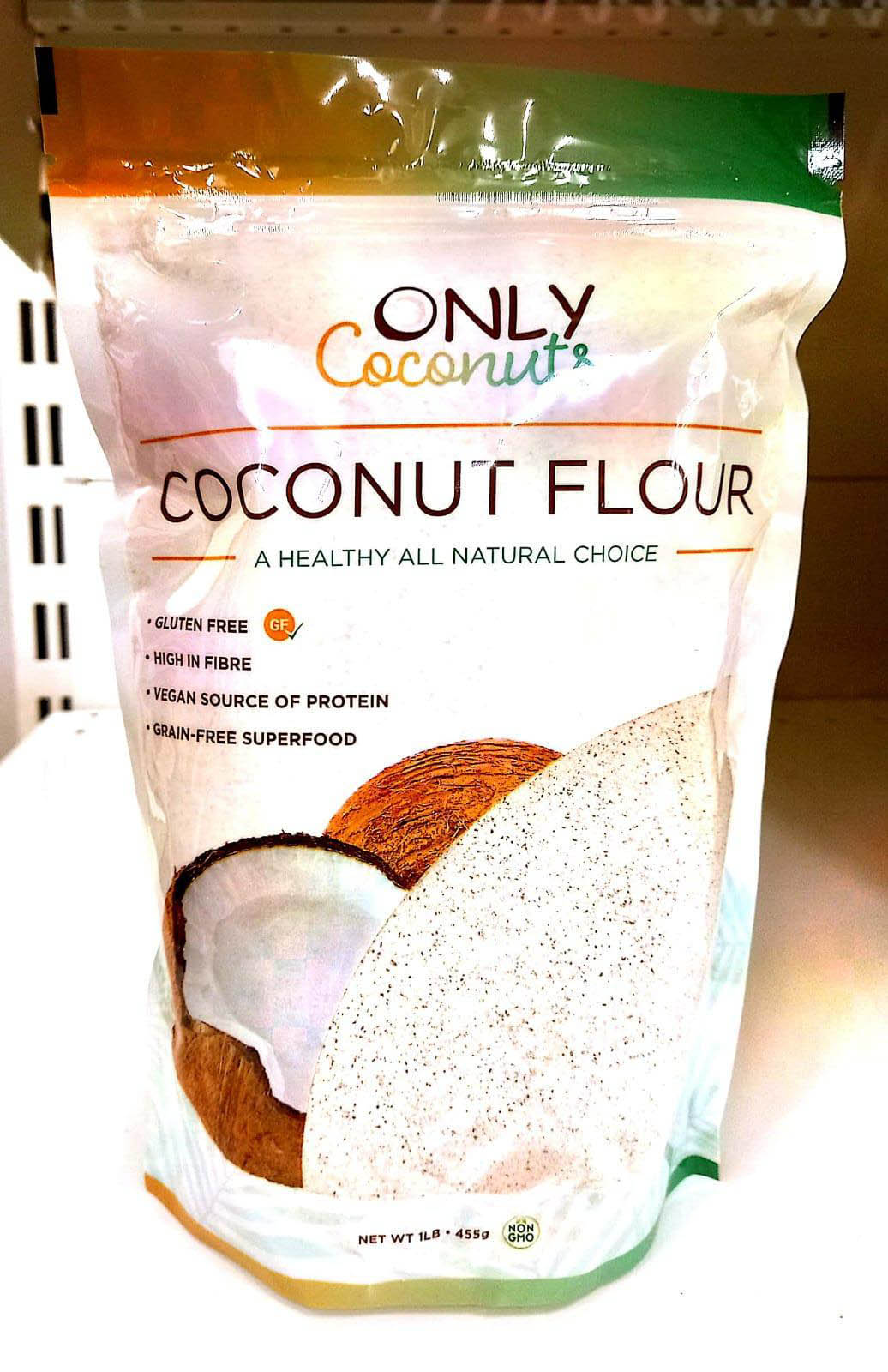We first met Vishnu Ramdeen back in 2016 at the Arthur Chung Convention Centre during the staging of Guyana’s first ever Coconut Festival. The Festival had been staged primarily to help broaden the base of local education regarding the use of coconuts and particularly about health and nutritional value. At that time, too, feedback from the global industry had suggested that coconut water was becoming one of the more popular beverages on the global market.
As it turned out the 2016 Coconut Festival helped to serve as a launch pad for the establishment of Coconuts Only, Vishnu’s own entrepreneurial venture into the coconut industry.
The company’s factory operations are located at Maurudi Creek on the Soesdyke/ Linden Highway.

Five years on, Coconuts Only boasts a US$8 million production centre theat manufactures Coconut Flour, Virgin Coconut Oil and Snack Coconut Chips.
It had taken three years after the Factory’s establishment for it to become operational and following its commencement of production late in 2019 it was to close its doors early in the following year on account of the onset of COVID-19. In August 2021 it was reopened.
Vishu had migrated to Canada several years earlier. His Coconuts Only venture, he said, had been a response to a desire to ‘”give back,” to Guyana. His choice of the coconut industry, he said, was a response to what he had observed in Canada. “I saw the demand for coconut products. It seemed to be a response to people’s pursuit of a healthier lifestyle. His own family’s use of coconut flour is influenced largely by the fact of an Autistic son and the consequent medical advice

that he be fed only gluten-free flour.
Once he had been sold on the idea of investing in the coconut industry Vishnu began looking around the Caribbean in search of a processing plant. He found none. “What I found was that we export the nuts to be processed overseas. I decided that I would open a process plant of my own. By doing so I am creating jobs and, hopefully, helping to put Guyana on the international map for coconut products.”
Vishnu says that his decision to locate the Factory at Marudi was driven by a desire to provide jobs for a community that did not appear to possess the resources to adequately sustain its largely Amerindian population. Marudi, he also determined, was well within ‘striking distance’ of Georgetown and close to other key coastal communities.
The Coconuts Only Processing Plant, Ramdeen says, can process between 85,000 to 100,000 coconuts per day. As of now, however, processing volumes are constrained by limited markets. Identifying markets is the entity’s highest current priority. James Singh, the company’s General Manager, told us that the company had sought and secured the assistance of the CARICOM Secretariat and was currently engaging some countries in region in its search for markets. Singh said that the company was on the cusp of engaging other potential overseas buyers and that the Guyana Marketing Corporation had also been helpful in this regard. The product promotion company Go Local has also been supporting the company’s marketing efforts.
Up to this point, James says, the company was pleased with the inroads it had made into the local market. “The coconut chip is becoming a popular local snack food, he says. The company’s products are also being sold in Canada where they have been well-received, he says.
The end of 2022 has been targeted as the timeline for the production of refined coconut oil to be used for cooking.
Singh says, meanwhile, that the company had invested a great deal of both money and energy in packaging and labeling given the role that these play in enhancing customer appeal. Currently the company’s products can be found at the Guyana Marketing Corporation’s Guyana Shop and at supermarkets in Georgetown, Bartica and Berbice. Marketing sorties into other communities across the country are being planned at this time.
The company is currently pursuing its Hazard Analysis Critical Control point (HCCP) certification which is expected to be completed within a month, clearing the way for export to Europe and North America.
There are rules governing the relationship between the company and the companies from which it purchases its raw materials. Before a seller is accepted company officials visit the farm to verify its safety credentials as well as its capacity to supply the quantities of coconuts required. Traceability is a key requisite for the completion of contracts with buyers. Relevant records must be kept in the event that investigations become necessary.
Competition for the acquisition of coconuts is among the company’s main challenges. The General Manager explained that costs and quality are particular challenges in what has become a highly competitive market. Still, they persist in the knowledge that the local, regional and international demand for coconut-based products continues to grow and that their products are sufficiently competitive secure a breakthrough on the local and international markets.






